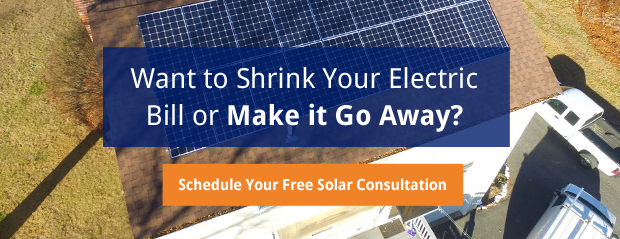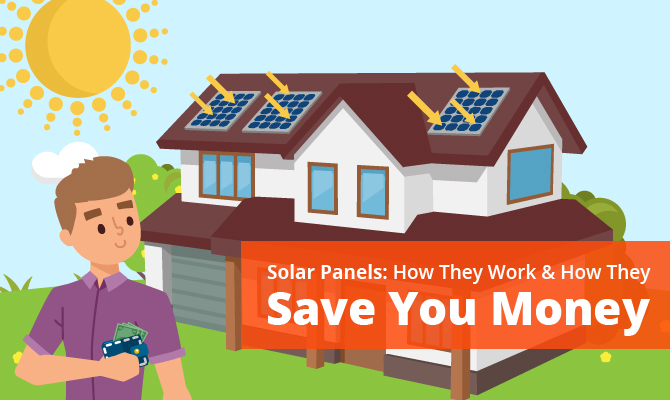
By now, you probably know that solar panels are great for the environment by providing clean, renewable energy to your household. You may also know that solar panels will cut your electricity bills, sometimes even eliminate them entirely, so that the solar panels pay for themselves over the course of a few years. If you find you’re still asking yourself, “how does a solar panel work?”, then this post is for you. Let’s take a look at how solar panels work and how going solar can help keep your budget in check.
How Does a Solar Panel Work?
It seems like magic: the sun shines down onto your roof and–voila!–your TV is powered, your refrigerator runs, and your iPhone gets charged. Once they are operational, solar panels really are that simple for homeowners. Of course, there’s a whole lot of science going on between the sun-shiny day and your iPhone. So how does a solar panel work? Here’s what you need to know.
- The Photon. More than just a component of sci-fi weapons, a photon is a single particle of light from the sun. Photons are powerful enough to knock individual electrons–the building blocks of electricity–from other atoms and cause them to move around.
- The Solar Cell. Solar panels are made from several smaller solar cells that are connected together. These little devices do the work of converting sunlight into energy. Each cell is made from layers of specially treated silicon that react with sunlight. As photons from the sun hit the top layer, the electrons become “loosened” and start to move to the bottom layer of silicon.
- Electrons on the Loose. Metal contacts on either side of the silicon layers move these loosened electrons together and in the same direction. The other name for this movement of electrons is electricity. This electricity is generated in a mode similar to household batteries, or direct current.
- Inversion. The last step before solar-generated electricity is usable in the home is to change it into alternating current, which is the same type of electric charge that powers outlets in your home. This is done using an inverter, or a fancy, electricity-transforming machine.
Hardworking Little Cells
When the sun is shining (or even only partially shining on a cloudy day), solar cells are busy making electricity. Now that we know “how does a solar panel work”, the next question a lot of people ask is “what happens when my home runs fully off of solar power?”.
Many home solar power systems are able to produce more electricity than what’s needed to power a home. In this case, the extra electricity is redirected to your local electrical utility for distribution, and your electric meter runs backward, as in starts subtracting from your total electricity usage.
When your solar cells are unable to keep up with your demand–during the evenings or heavy periods of electricity usage–you’ll simply draw from the local utility to power your home. This will run your meter forward. If your solar cells are able to generate enough surplus electricity during peak sun hours, your net usage from the local utility will be zero.
What About My House?
No two homes are the same, and no two households consume energy in the same way. To find out how your home and family will benefit from solar panels, schedule your free, no-obligation solar consultation with Wattson Home Solutions.
During your consultation, you’ll speak with a specialist who can answer any questions you may have, including “how does a solar panel work?”. He or she will evaluate your home and energy usage and develop a customized plan for your home. Plus, they’re bound to educate you on all of the benefits that solar has to offer, including rebates and other incentives you may qualify for.
Solar energy is easier and more affordable than ever for Massachusetts homeowners. To learn more or to schedule your no-cost, no-obligation solar consultation, contact Wattson Home Solutions today!








